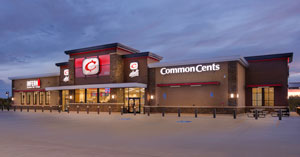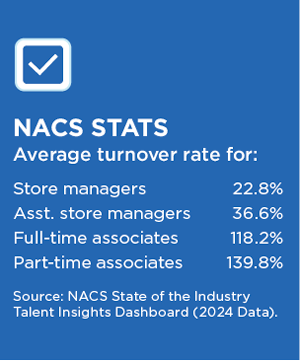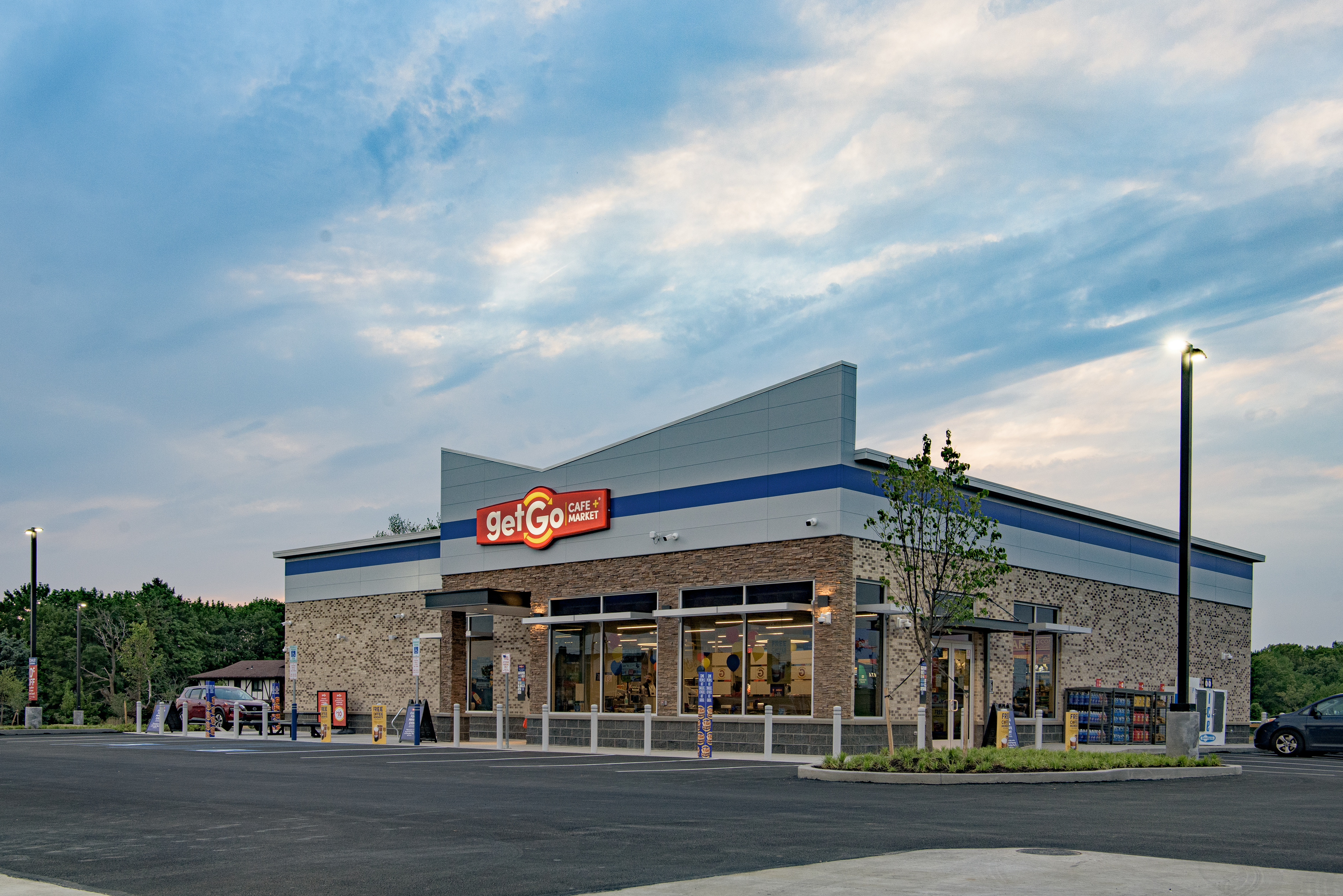You’ve just promoted an associate to store manager, giving her a salary for the first time in her career along with an intimidating list of responsibilities. When should training begin?
Consultant and onetime store leader Tom Hart said it should have begun on the employee’s very first day with the company in the form of setting realistic expectations to build that employee’s knowledge and confidence.
“From my experience, we push too much on new employees in their first three shifts, sometimes on the first day,” said Hart, now the director of business development for Ready Training Online (RTO). “That first couple of days behind the register, you don’t really know what you’re doing; it’s hard. You start thinking, ‘I can’t do this job.’ ... That lack of confidence by a new employee can often lead to turnover. It doesn’t need to be that way.”
In that position, he said, many new employees choose to leave and never come back.
“Management is under stress. They want to get [the new employee] productive behind the counter as quickly as possible,” he said. “Our direction is to be more patient. Give them the time to build the confidence they need to be successful. That first three to 30 days, you’ve got to slow down a little and build up the confidence of new employees.”
It’s these employees, the ones who have been nurtured, who become strong candidates for store management and other leadership roles.
Begin at the End
Common Cents. For Moyle Petroleum Co., that’s not just a store brand, it’s also a suggested way to manage a convenience store.
 At Common Cents, "We talk about people using commonsense" in their jobs.
At Common Cents, "We talk about people using commonsense" in their jobs.
“We actually use that in training sometimes when we talk about people using commonsense [in your job],” said Michael Deal, director, human resources, Moyle Petroleum, which does business as Common Cents. “It’s different than when I began in the industry. You had to run the cash register and take credit cards. Today, operating a c-store is completely different. You have to be somewhat comfortable with technology.”
Deal has worked for the Rapid City, South Dakota-based chain for 27 years, having started in the industry on the nightshift for another retailer and working his way up to his current role. Today, he uses his own experience to illustrate the opportunities that exist at Moyle Petroleum and in the c-store industry overall.
“The average person who comes in [looking for a job] isn’t aspiring to be a store manager,” he admitted. “Our industry is kind of a transient industry. [Employees] are not looking to build a career in convenience stores.” However, at Moyle Petroleum, Deal said, scores of leaders have risen through the ranks.
That growth, in Deal’s mind, is the most appealing incentive he can dangle for potential employees at any level. And in a business that routinely sees turnover rates of nearly 150%, employers need to view every new worker—regardless of starting position—as a potential store manager and more.
“We truly believe that the success of a manager starts off with people starting at that entry-level position. We 100% promote from within the company,” he said, noting the turnover rate at Common Cents was 92% in 2024. “Just recently, I hired the general manager of a very large supermarket chain, and we had him start off as a manager-in-training with us. ... It was an hourly position because we don’t bring people in as a manager. They have to come in, see what our culture is about, make sure it’s a good fit for them, a good fit for us. We’ll give them that opportunity.”
Workforce consultant Bob Phibbs calls that poaching ... and he’s all for it. “That’s the best thing,” he said. “You can see how that somebody deals with customers, how they deal with other employees.”
Building up an employee from scratch requires additional work on the trainer’s part, he added, and it’s necessary to prove to an employee that new expectations are realistic.
“You’ve just got to work five minutes with your employees doing something that’s a grunt job—maybe you’re going to clean the bathroom with them or take out the trash. You’ve got to do it with them and not gripe about it,” he said. “They’ve got to see you pitching in when things go bad instead of ordering someone else to: ‘Get a bucket!’”
Phibbs believes much of the turnover in any retail channel is self-fulfilling. “If you’re not going to train [employees] or pay them more, then you’ve got to settle for whatever you’ve got because you don’t give a darn,” said Phibbs, CEO, The Retail Doctor, Coxsackie, New York. “Maybe your store isn’t the newest, but you can certainly provide a better experience for the customers, and that starts with the people who are working there.”
Changing that is a matter of deciding what your priorities are. As Phibbs put it, “Start with the end in mind.”
“There are four things that retailers are typically working on: They want to cut down on turnover. They want to improve cleanliness at their store. They want to have a manager they can trust. And they want to have customers who want to come back and choose them over the other guy,” he said.
Once you’ve defined those end goals, “Then you can figure out how to train them better and consider whether you need to pay them more.”

Promoting for Success
Giant Eagle’s GetGo convenience-store brand—now under Alimentation Couche-Tard after an acquisition closed earlier this year—leans on promotion from within to ensure the success of store managers and other roles.
“We really try to prioritize how we develop team members and how we can get them to their next step,” said Cory Schaffranek, senior manager for GetGo operations, services and transformation, and previously a store leader and talent coach, among other positions.
Schaffranek joined Pittsburgh-based Giant-Eagle 17 years ago as a 20-year-old store cashier and worked his way through the ranks to reach his role today.
“Through the organization’s focus on development and their culture for putting team members first, I’ve had the opportunity through my career to grow into our different in-store leadership roles [and beyond],” he said. “That’s a really similar story that you can hear from a lot of the team members within the organization. There’s a lot of tenure. There are a lot of opportunities for people to grow. And you can’t grow into those roles without building those employee skill sets.”
It’s not always easy to know who is ready to move up to a new role or not. As Hart said, a hard worker is not necessarily guaranteed to be a good manager.
“A lot of times, we reward hard work with over-promoting. I made that mistake when I was a district manager,” he said. “In my experience, all store managers are hard workers, but there are certain skills you need, those softer skills—time management, leadership and so on.”
Deal, who practices in-house and RTO training measures, agreed wholeheartedly with that sentiment.
“When you take that last leap from first assistant to store manager, your success is not predicated on how hard you work,” he said. “Now your success is predicated on how other people work for you. So, we really try to spend some time with that new store manager.”
For Deal, that process begins before the promotion, having a first assistant fill in for a store manager who is on vacation, for example.
Once a promotion is activated, Deal conducts a two-day training session for new store managers, outlining top-level elements of the position that may be new to the employee. These include, among other things:
- The hiring cycle
- Employment law
- Performance appraisals
- Disciplinary actions
- Terminations
- Harassment and discrimination
- Workplace violence
- Workers’ compensation
- Equal employment opportunity
From there, Deal turns to RTO’s training videos. The Elizabethtown, Pennsylvania-based company maintains a content library of more than 100 video training modules.
“We also created our own team-member development guides for entry level, second and first assistant roles. As you move up, it becomes a little more administrative,” Deal said. “That basically takes them through everything they’re going to need to be a store manager.”
This includes how to handle accidents, family medical leave, inventory management, team development and product turns. “You don’t want to overwhelm anybody, but all of these are vitally important when you’re moving on to a new role.”
 GetGo prioritizes "developing team members and how we can get them to their nexct steps."
GetGo prioritizes "developing team members and how we can get them to their nexct steps."
Making It a Career
At GetGo, team leaders work with employees to create development action plans that identify skills employees need to grow and outline opportunities to make it happen, whether that be formal or on-the-job training. Meanwhile, succession planning outlines job openings, present and future, that could be an opportunity for each employee.
“Leaders work with their team members to identify strengths and opportunities within their role and [help] that team member build their own plan about how they’re going to develop those skills,” Schaffranek said. “That’s team-member driven. The leader is there to guide them, but it’s really up to the team member to drive their own development throughout.”
Those action and succession plans serve a dual purpose by providing both direction and inspiration for employees.
“When we have those development action plans, it really puts a passion behind the team member in making sure that they get the learning that they need for their role,” Schaffranek said.
GetGo’s training program follows a formal education-themed path of progress:
- Hourly employees attend GetGo Academy. It teaches in-store skills such as how to be a cashier or how to work in a store kitchen.
- Employees on a store-leadership track can enroll in GetGo’s Master University program.
“Any person put in line for an assistant store leader or a store leader role goes through this program,” Schaffranek said. “It is with a certified trainer. We have 50 to 60 certified trainers for each of our banners. Each trainee is put with one of those trainers, and they grow through a mixture of written learning, hands-on learning, knowledge checks and leadership skill development.”
The program teaches tactical and job-specific skills but also “has a pathway in it where leaders are required to take some leadership skills.” This includes skills such as building trust, providing feedback, building credibility in authority, retention strategies, servant leadership and others. “Those courses are required as part of this pathway so that at the end of training, they have developed not only how to do the day to day, but how to lead a team.”
For those at the assistant or store leader level, Master University helps them improve their skills and prepare for future advancement. (See the sidebar “Leveling Up” for more on GetGo’s training curriculum.)
Back over at Common Cents, through all its training protocol Deal tries to instill trust and authority in new store managers and emphasizes that idea of commonsense that employees see in the Common Cents store logo every shift. He said he often comes back to the company’s mission statement as a master direction: “We guarantee exceptional friendliness, clean stores and fast service.”
“We can’t prepare you for everything,” he said. “We try to emphasize that the reason they’re getting this opportunity is we believe that they’re the right person for the job. We put you in this position because we think you have commonsense, and we think you’ll be a good ambassador for our brand. We trust you to make decisions. If you’re ever in doubt about a decision, fall back on those three pillars: friendliness, clean stores, fast service. If you make decisions based on those, even if it’s the wrong decision, we’re going to understand that.”
Leveling Up
At all levels of the organization, Giant Eagle/GetGo offer employees access to a variety of tools to facilitate development of leadership roles.
- App-based. GetGo provides all employees with access to an app-based micro-learning program it calls Thrive. “This provides team members with the opportunity to self-register and take their own mini-leadership development course,” said Cory Schaffranek, senior manager for GetGo operations, services and transformation. Covering leadership topics such as delegation, communication, managing work relationships and more, the lessons are between two and five minutes in length.
- In-person. GetGo hosts in-person, multiday training sessions that focus on leadership skills. “How do you lead a team? How do you communicate? We do those in person to bring leaders at the same level together to learn those skills, to network and to be able to focus on their next step within the organization. There are multiple levels of that. There’s a level for store leaders, a level for district leaders and so on, to really help them continue to grow throughout their career.”
- Continuing education. Recognizing that store leader is not the last opportunity to grow at GetGo, the company hosts regular continuing education sessions to provide further development. “In this meeting in November every year, we focus solely on leadership skills. We do breakout sessions throughout the day that are self-registered to give them the opportunity to focus on the skills they would like to build. It might be addressing conflict or leading effective meetings. It gives them the opportunity to come together in person and focus on just their skills. It’s a really big investment from the organization on their next steps and leadership development.”
Mike Deal's Deal
As a retailer with 30 convenience stores, Moyle Petroleum/Common Cents stands as a B-level chain, according to NACS’ scale of store-count groups, far from a mom-and-pop shop but not quite in the big leagues of convenience retailers. But with nearly 500 employees, the company has built a strategy and tactics to help employees develop skills that will allow them to move up the promotion ladder of the company. It starts with that first day on the job.
“We’ve had people come to us and have almost a meteoric rise.” said Director of Human Resources Mike Deal. “They go from a third-assistant position, to a second assistant, first assistant, and then to store manager all within six months. A manager-in-training can come in and assume a role as a manager within three months.”
“We train an entry-level employee for five days with a training director, and then they go to their home store, where they train with the store manager for a day. So it’s a six-day training program.“
“In that period of time, we do an employee-attitude survey with that person. Then within 30 days, we check in with that person and conduct another 30-day survey, then at 60 days we do a more formal performance appraisal.”
Employees are eligible for a raise and benefits after 60 days. “Because if we keep somebody past 60 days, our chance of retaining them has increased exponentially,” Deal said. “It’s phenomenal how fast it grows.”
Deal also surveys all store employees personally, touring all stores once or twice a year. I give them a tablet to complete the [anonymous] survey. All I see is tabulated results. They can offer us feedback on the supervision they’re receiving, on work conditions, on benefits. There’s an open comments section.”
Those comments have ignited marketing ideas, changes to policy and procedures, updates to uniforms and more. “I think people see that and they really appreciate that the newest person on staff can complete that survey and get a message to the owner of the company. It’s pretty cool.”
How Important is Salary
“Twenty years ago, we could say, ‘You’re on salary and that means you work any and all hours. If somebody doesn’t show up, you have to do it,’” said workforce consultant Bob Phibbs. “Today, good luck with that!”
While salary shouldn’t be the most important thing in maintaining a strong staff, retailers do need to recognize where else their employment pool is looking for a job.
“You’re competing with McDonald’s now for an associate at $15 an hour. That’s the reality. Walmart will pay $22,” he said. “Don’t think you’re smart that you have people working for less. You’re going to pay for it one way or the other.”
Tom Hart of Ready Training Online said employers need to recognize the challenges of being a store manager. It’s more than waiting on customers and keeping things in stock.
“A manager is managing labor, inventory, a store that brings in over $2 million, a staff of 10 to 30 people, regulatory issues, community relationships, marketing plans, keeping people safe. All of that is part of your daily life, and that’s big,” he said. “You also get calls at 2 a.m. That is never someone calling you to say, ‘Hi, I just want to let you know things are going well and everything’s great.’”